Transcript
Me: “This is the view Medieval Man held of the universe: it is based on Aristotle and made to fit with the Bible:
There are three Heavenly spheres: one for the stars and two invisible ones.
Earth is enclosed by the spheres of fire and air. The earth is made out of four elements: earth, water, fire and air.”
Yiri (pointing at spheres for Saturn, Jupiter, Mars, Sun, Venus, Mercury and Moon): “These are the spheres of the seven ‘planets’! They exist in a fifth element: ether!”
God (on a cloud above): “This is where I live, in the highest sphere: the empireum. With all the elect!”
Medieval man: “There are thirteen spheres altogether. A meaningful number, because: Jesus + his 12 disciples = 13!”
“Everything points to God!” (We call this: theocentric)
(singing): “Creator of the earth and sky / ruling the firmament on high”
Me: “They actually BELIEVED that? That’s stupid!”
Yiri: “Well… Considering what they knew then of the universe, and what they could observe, it was pretty ingenious!
Besides… How can we be sure our own worldview is accurate? It also consists of debatable theories. Who knows? Maybe in 500 years they’ll say:
Ha! Look at their attempts to describe underlying principles of the universe in mere formulas! “e=mc2” “space-time” haha “quantum” How stupid! They didn’t even know about exp?zworp at the very center of the universe!”
Questions
How do you think ancient philosopher-scientists arrived at the theory of there being spheres?
The fifth element in medieval philosophy, ‘ether’, differs from what we call ether nowadays. Do some research about this and present it in a one page essay.
Which parts of our current scientific worldview do you think are most debatable? Why?





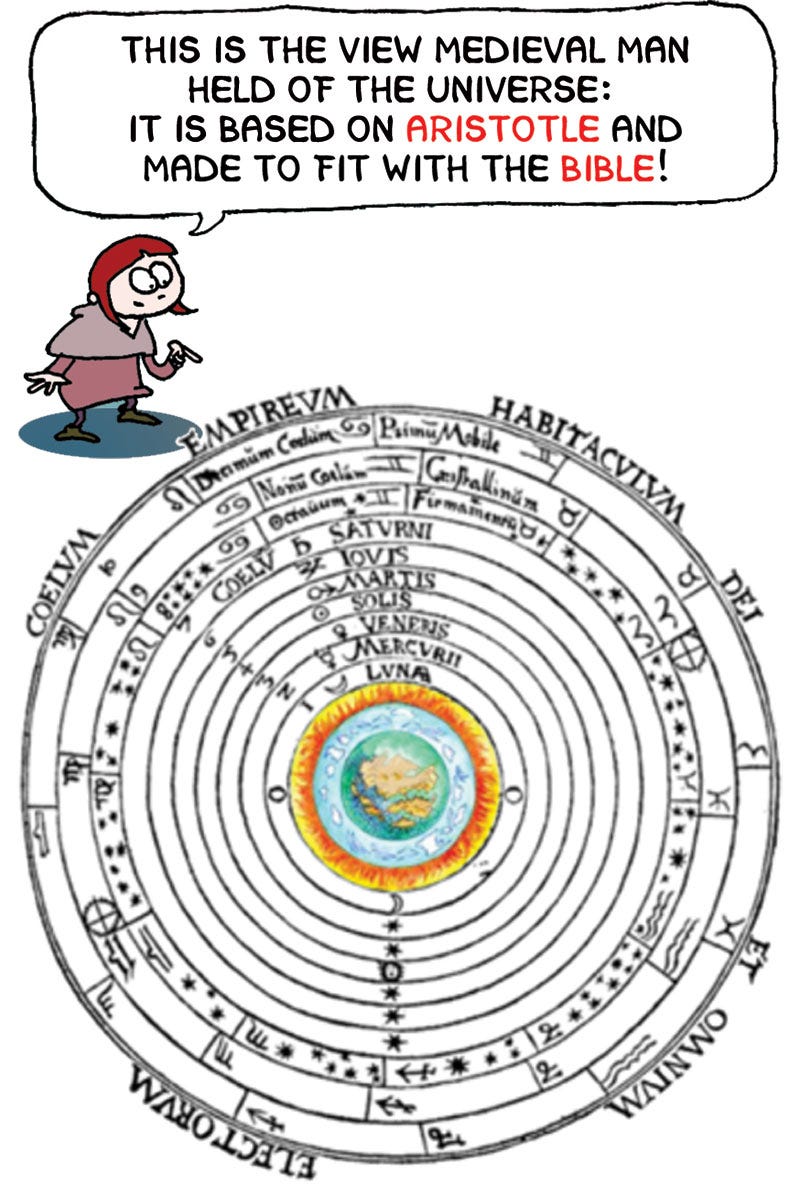
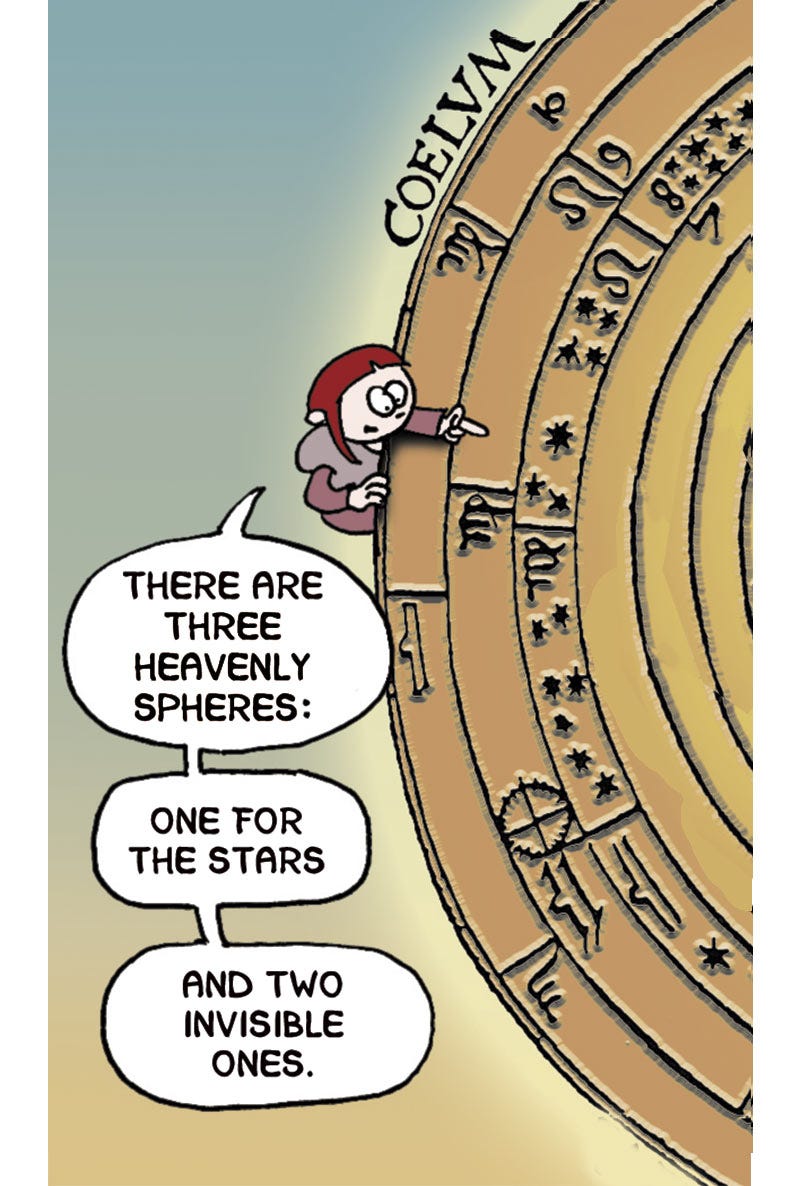
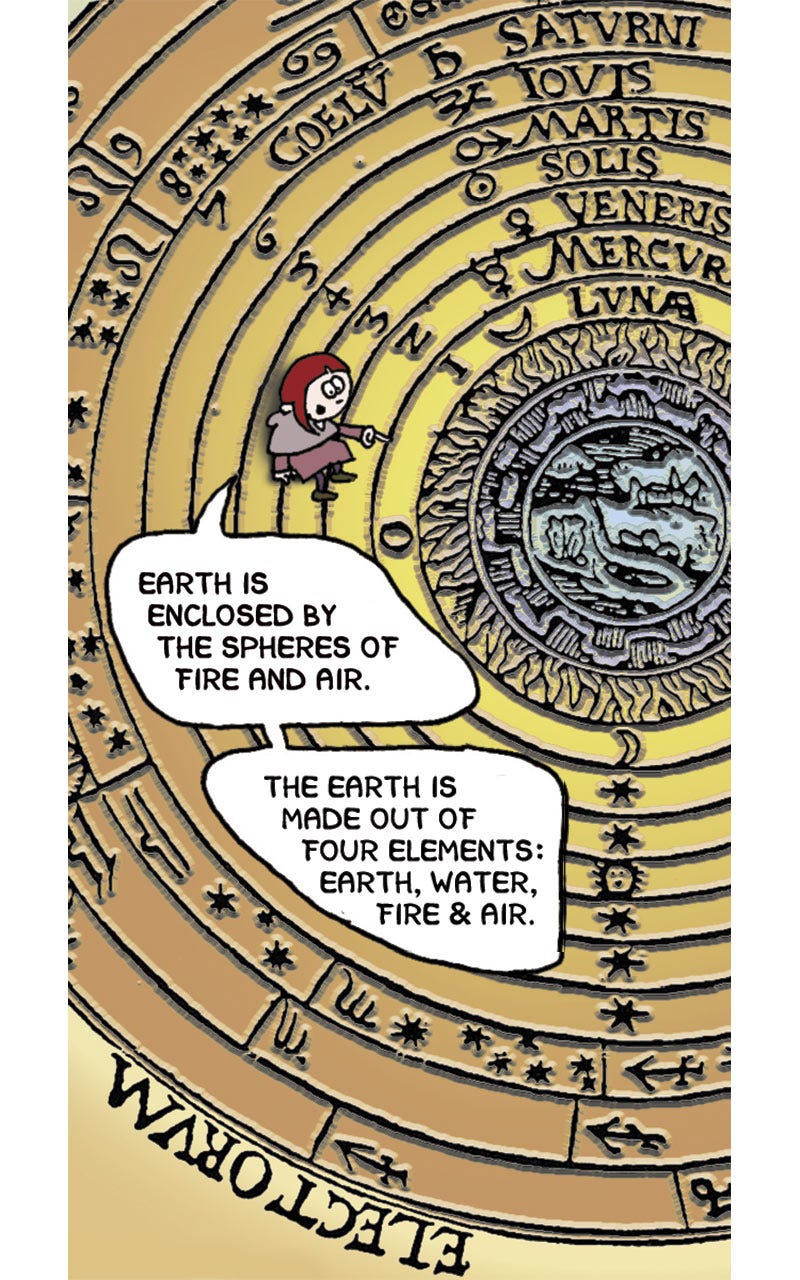

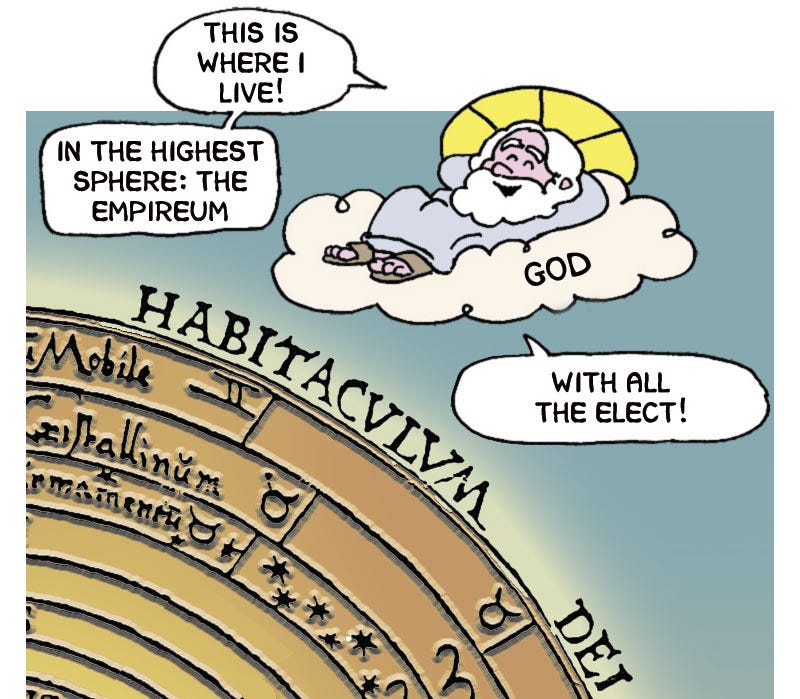
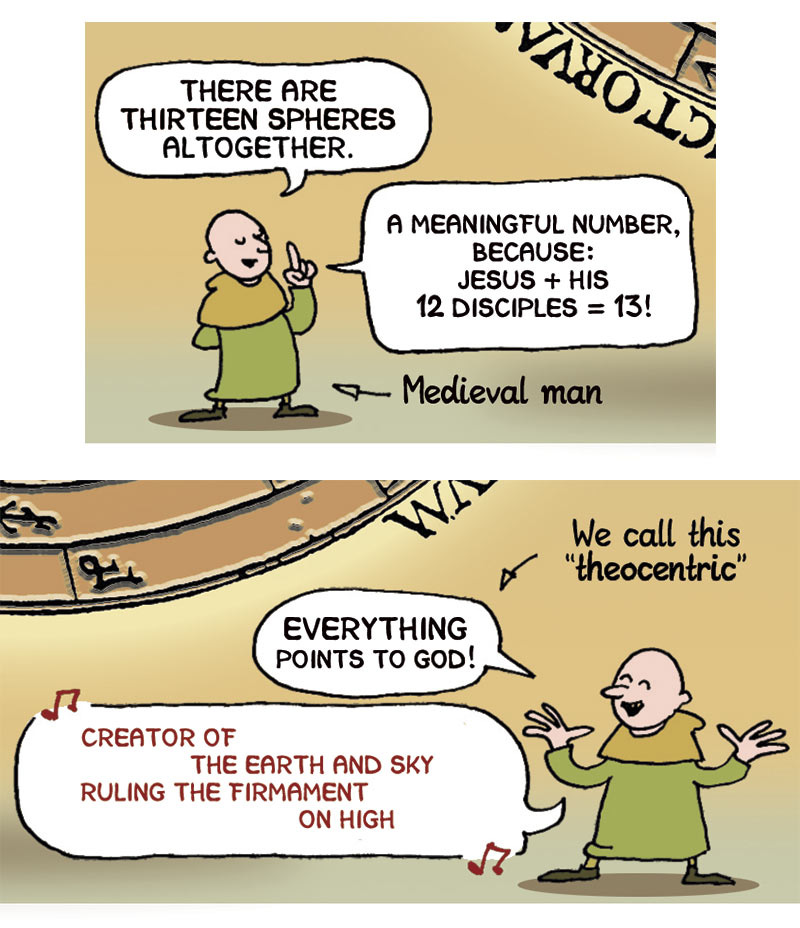
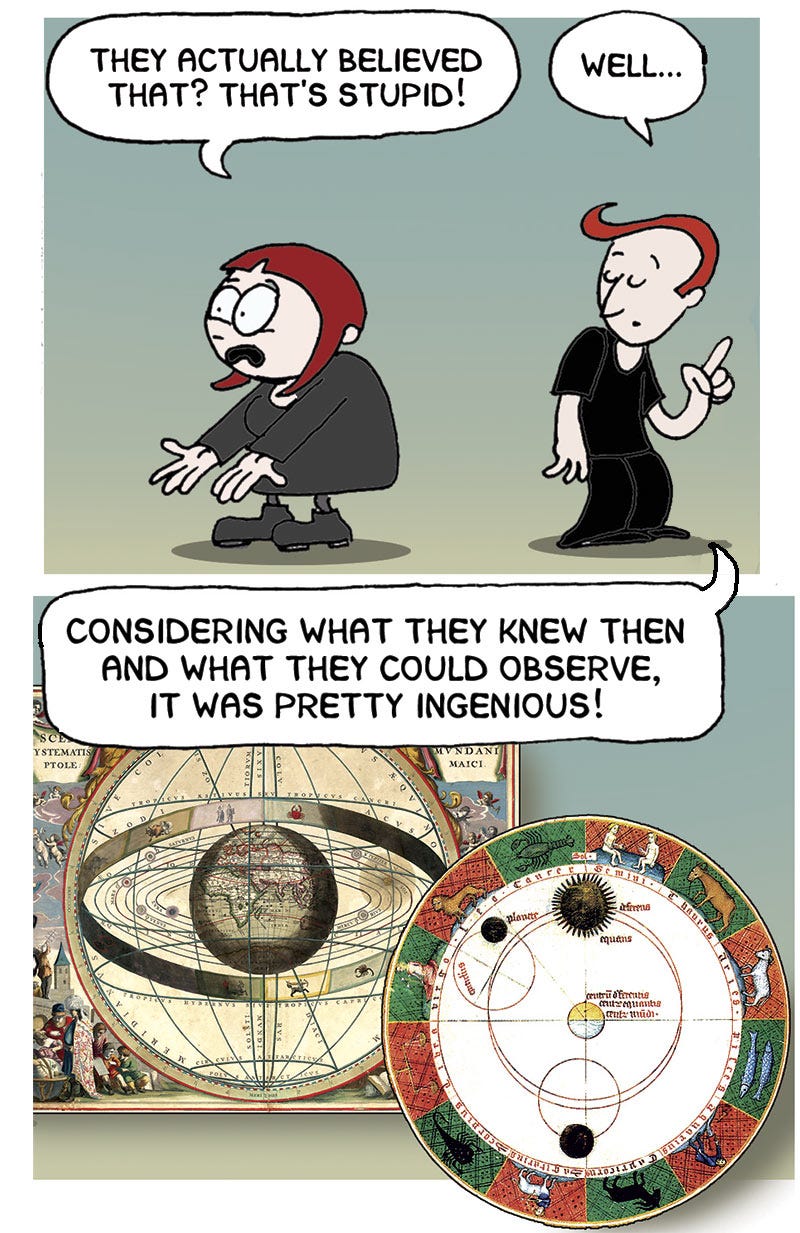
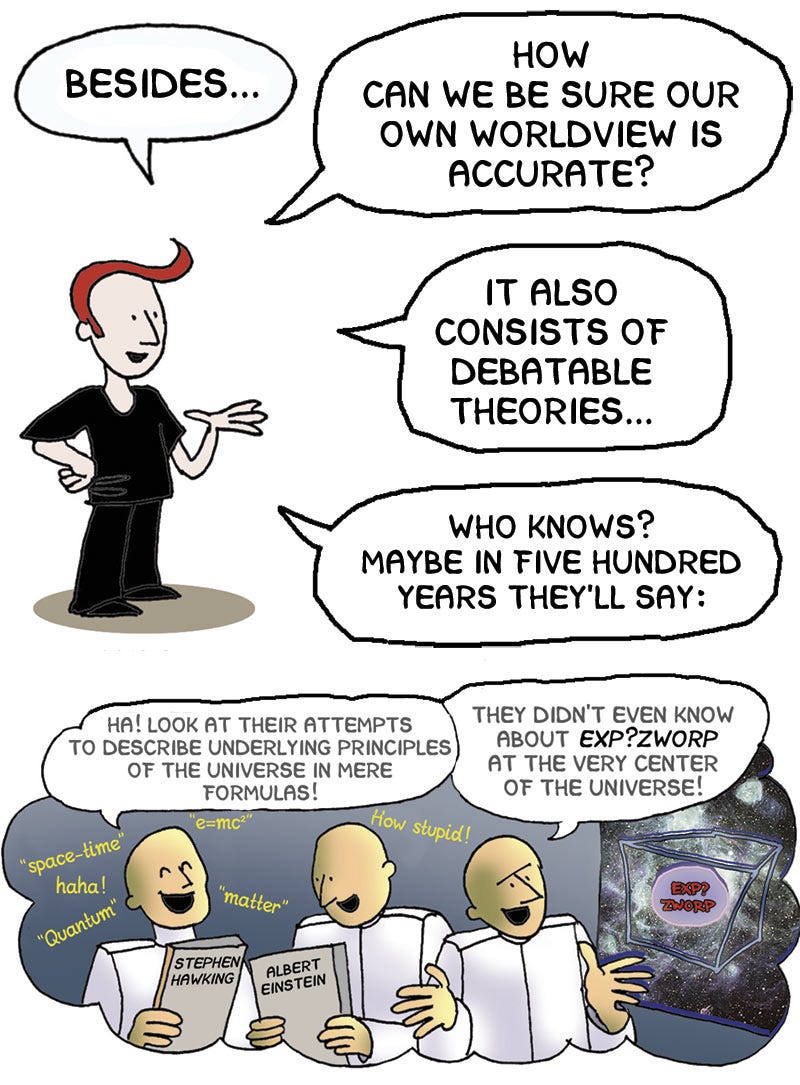
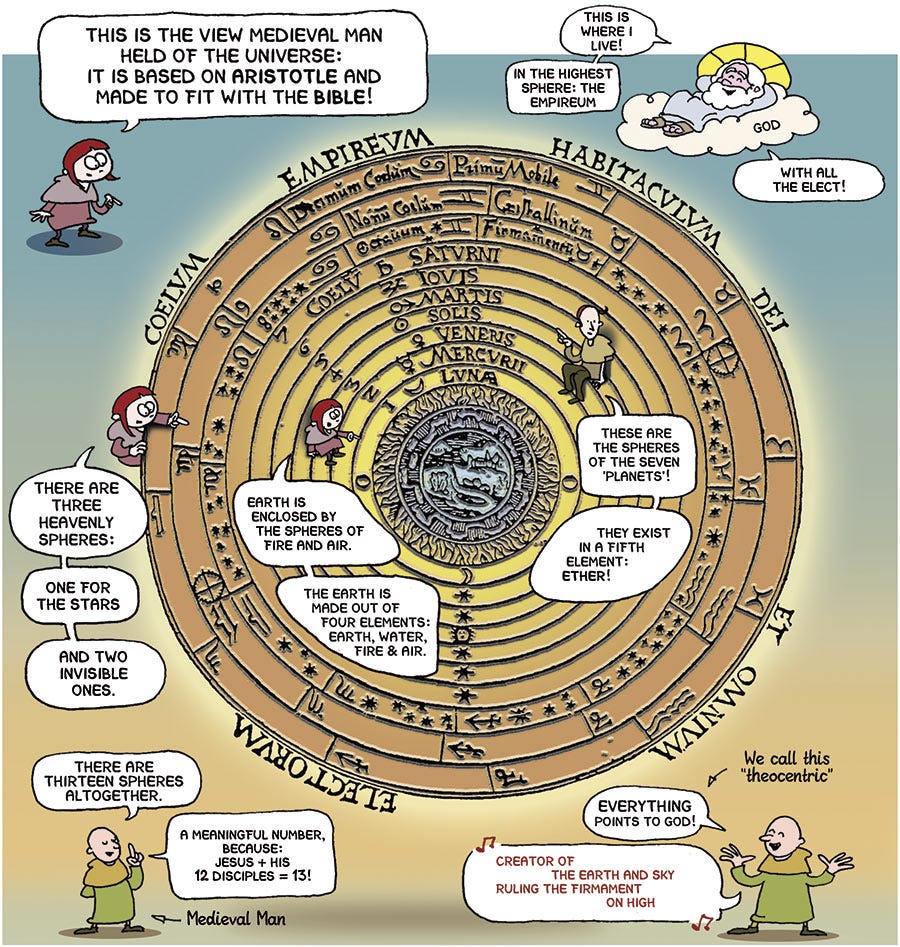

All hail to the mighty exp?zworp?
So we really know nothing? That works for me! 😅 I love how you and your hubby keep changing outfits as the years go by.